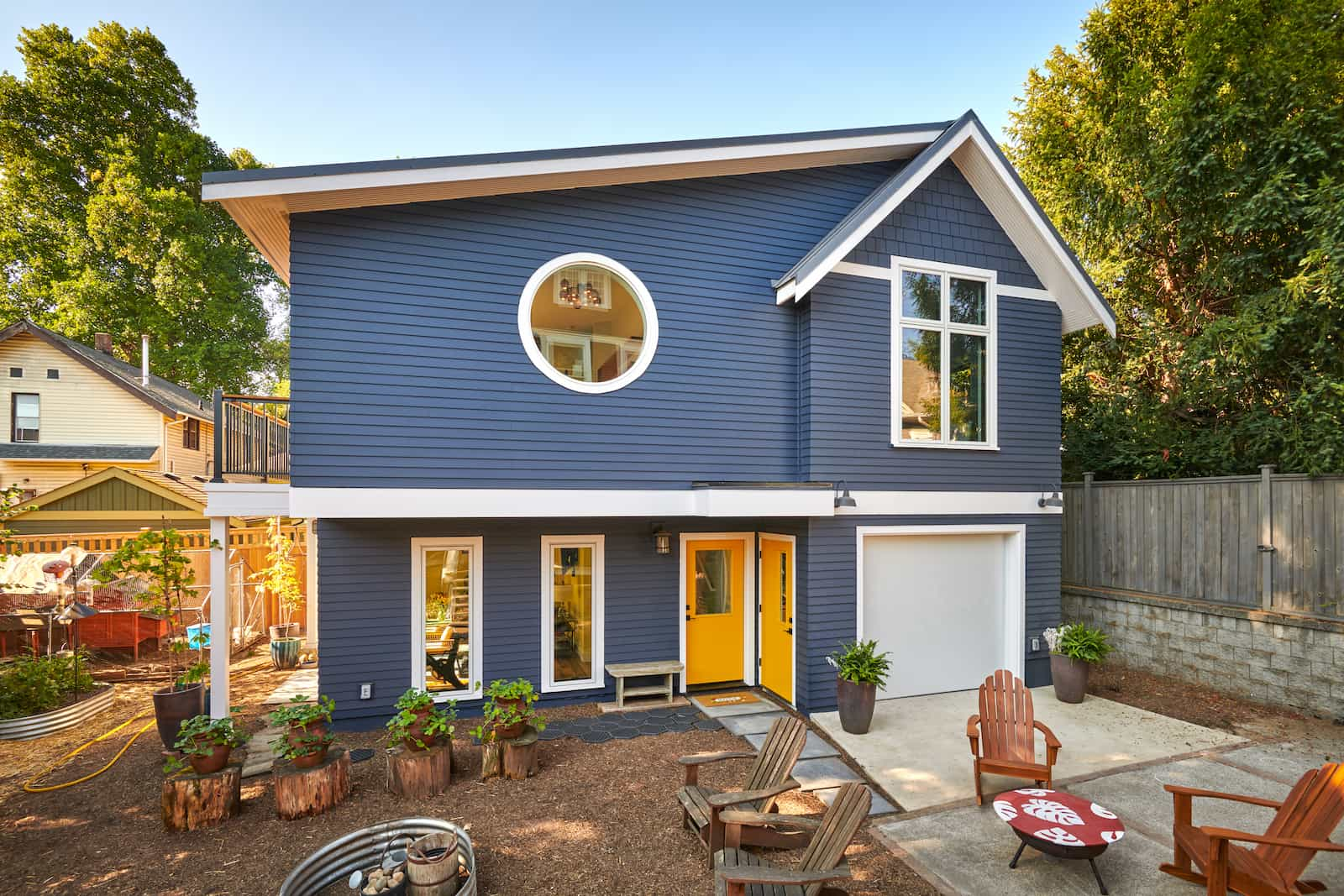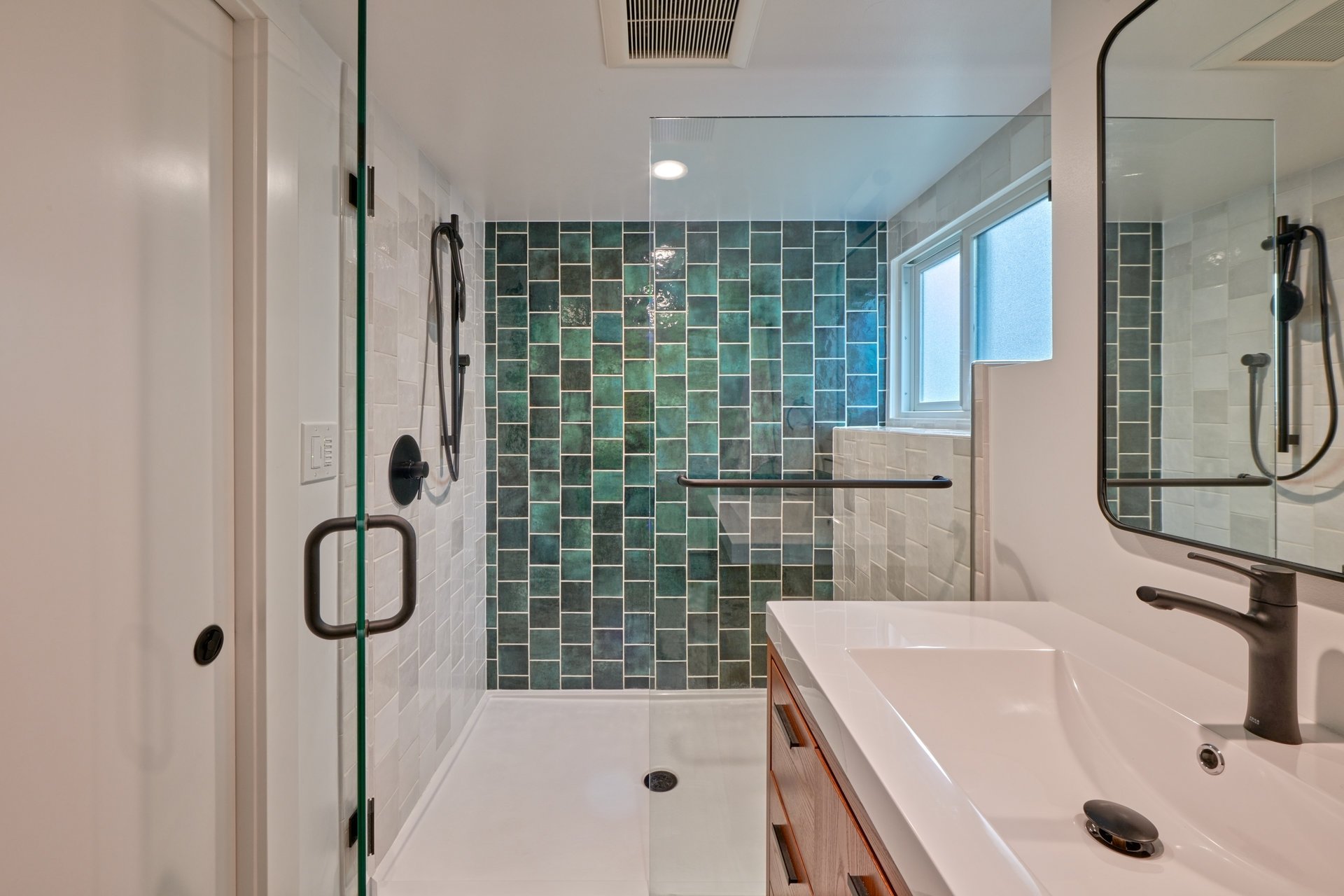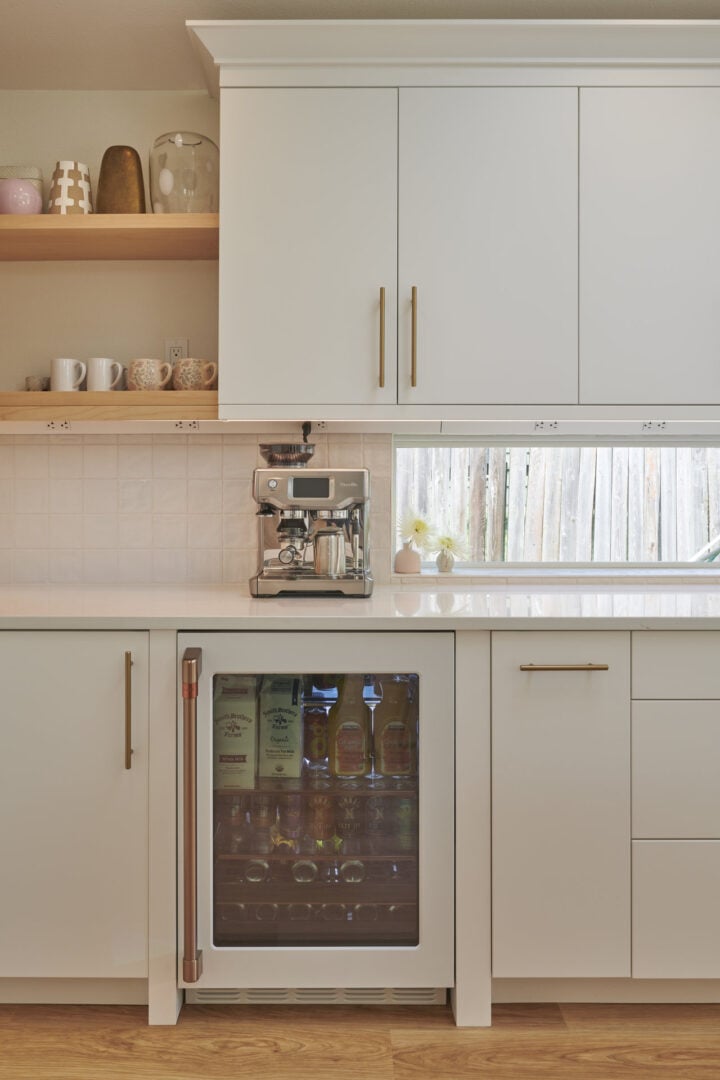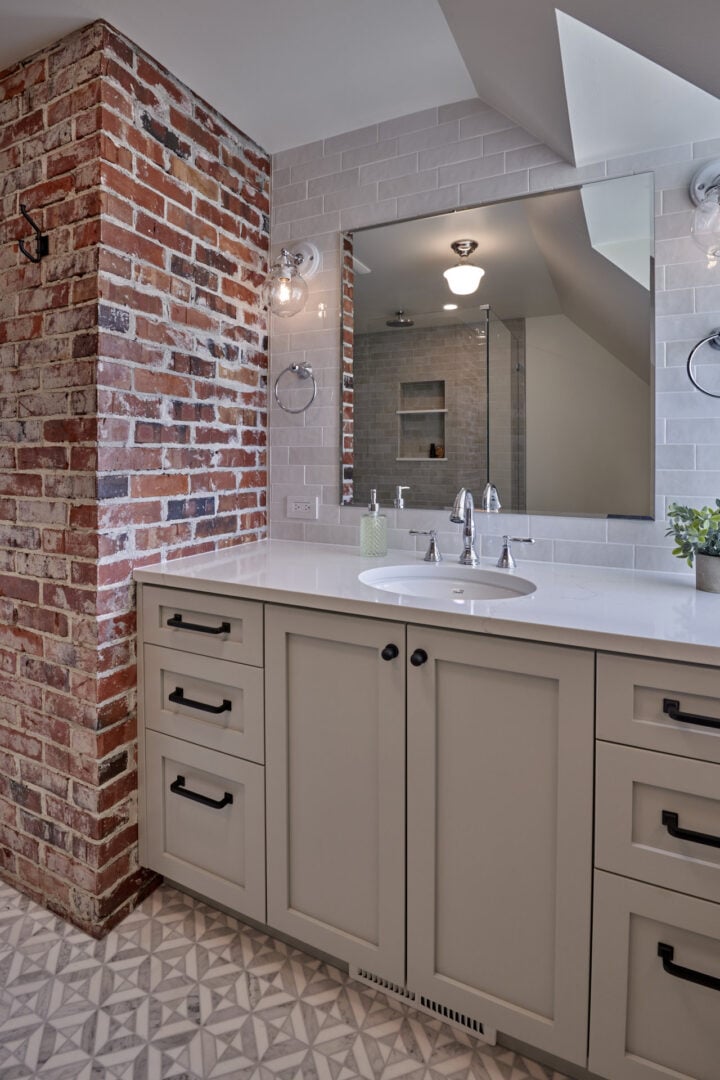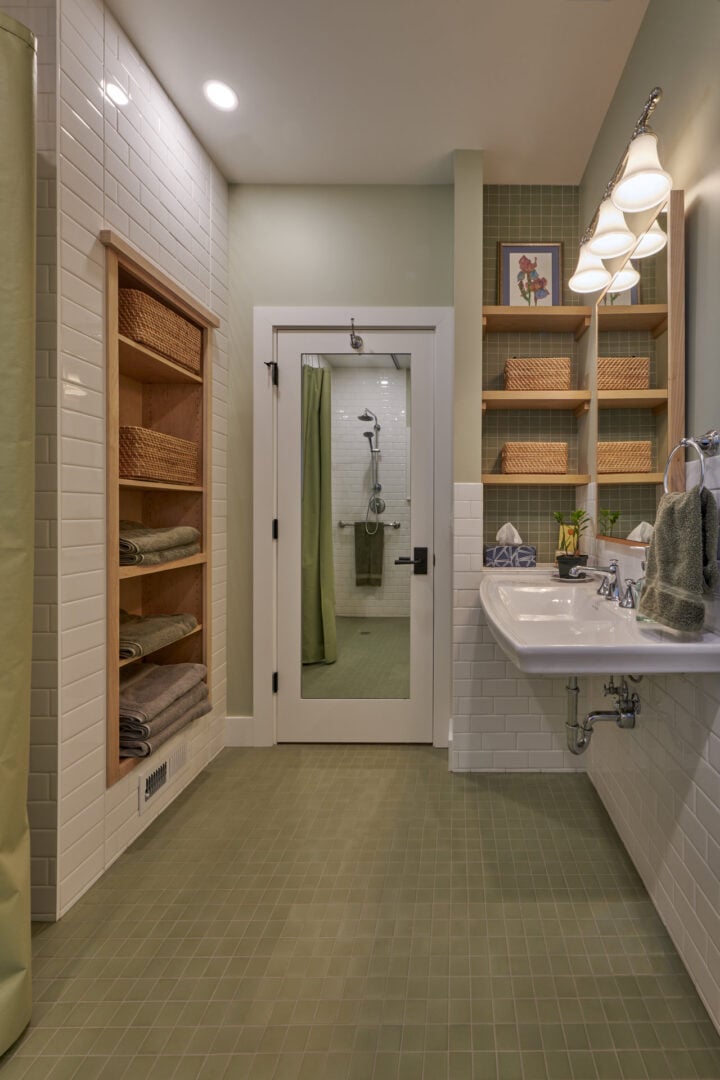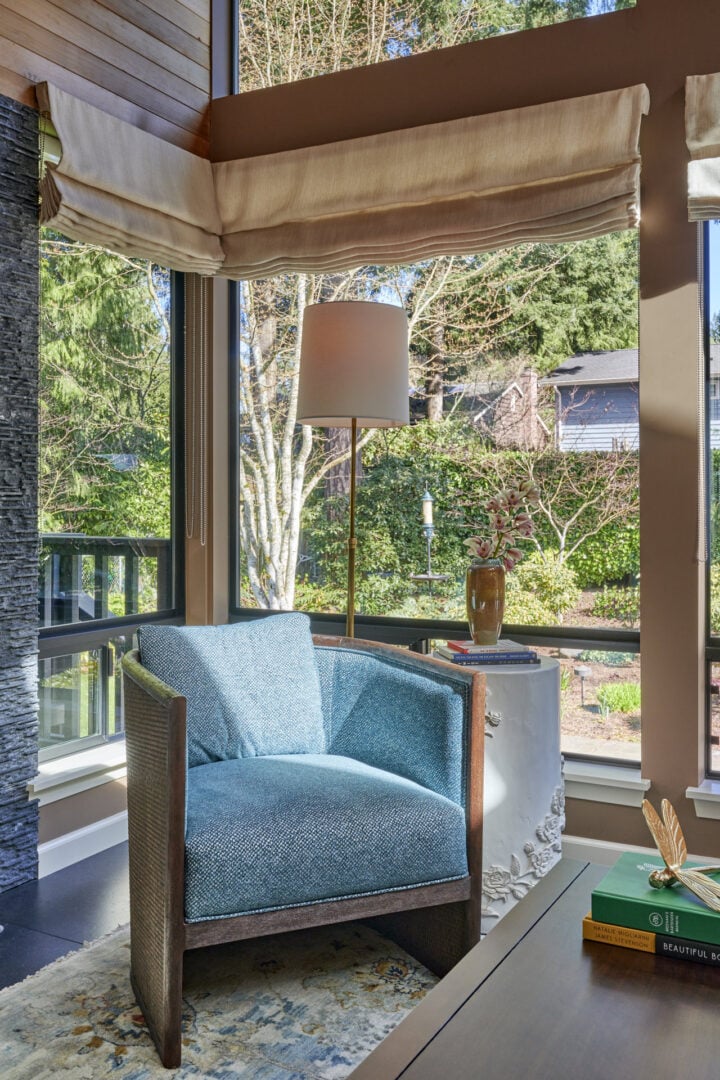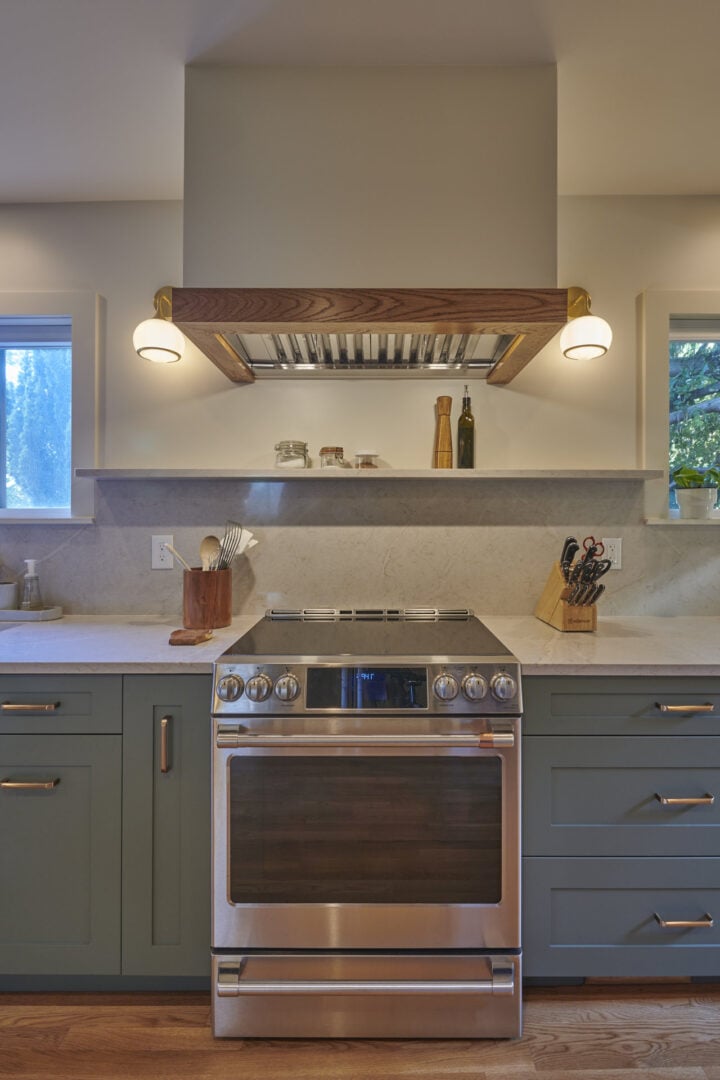In recent years, the need for more living space has surged exponentially. Legislative changes in Seattle now allow for the easier development of ADUs in Seattle’s single-family zones, and similar legislative changes in cities like Portland have caused these buildings to grow in popularity around the country.
Seattle homeowners are increasingly exploring innovative solutions to maximize their property’s potential. Accessory Dwelling Units (ADUs) and Detached Accessory Dwelling Units (DADUs) have become popular options thanks to their versatility and the added value they bring to properties. In this post, we’ll delve into the definitions of ADUs and DADUs, highlighting their differences and similarities. Plus, our team of design-build experts will provide insights into their growing presence in Seattle.
Whether you’re considering expanding your home or looking for a new investment opportunity, we’re here to help you understand the nuances between the two.
Defining ADU (Accessory Dwelling Unit)
What Is an ADU?
An accessory dwelling unit called an ADU or attached accessory dwelling unit, is a secondary housing unit on a single-family residential lot. ADUs are typically attached to or part of the primary residence. They are usually smaller in size and can be located in the basement, attic, or even as an addition to the main house.
See this podcast: ADU Seattle?
Common Uses and Benefits of ADUs
ADUs can serve many purposes, from providing additional space for family members to generating rental income. They are also ideal for creating a home office, guest suite, or independent living quarters for aging parents. The benefits of ADUs include increased property value, flexible living arrangements, and the potential for passive income.

Defining DADU (Detached Accessory Dwelling Unit)
A Detached Accessory Dwelling Unit (DADU), also known as a backyard cottage or carriage house, is a stand-alone structure separate from the primary residence. Unlike ADUs, DADUs are not attached to the main house but share the same property lot.
DADUs are independent buildings, often located in the backyard or other areas of the property. They provide complete living facilities, including a kitchen, bathroom, and sleeping area, offering a fully functional, self-contained living space.
A Detached Accessory Dwelling Unit (DADU) is a type of Accessory Dwelling Unit (ADU) that is a separate, freestanding structure from the primary dwelling unit. DADUs are designed to provide additional living space for family members, guests, or renters, and can be built in a backyard or on a separate lot. These units are subject to local regulations and zoning laws, and must meet specific requirements for size, placement, and design. DADUs offer a versatile solution for expanding living space, whether for accommodating family members, generating rental income, or creating a private retreat.
See this podcast: Podcast Ep 105: Can You DADU?
Unique Features and Advantages of Backyard Cottages (DADUs)
One of the primary benefits of DADUs is the privacy they offer. Because they are detached from the main house, they provide a fully separate living space ideal for tenants, extended family members or even as a home office or studio. DADUs also enhance the property’s versatility and can significantly boost its market value.
Key Differences Between ADUs and DADUs
Now let’s break down some of the key differentiating points of each type of structure. When comparing ADUs and DADUs, several key differences are apparent, such as:
- Location: ADUs are attached to or part of the main house, while DADUs are completely separate structures.
- Privacy: DADUs offer more privacy due to their standalone nature.
- Sound isolation: A DADU is far removed from sounds that might travel between sections of the main house.
- Design Flexibility: DADUs allow for more creative and varied design options since they are independent structures.
- More square footage: Because a DADU or backyard cottage is a standalone structure, it doesn’t eat into the square footage of your main home. An ADU or mother in law suite, on the other hand, is often carved out of the basement or ground floor of the main house.
Commonalities Between ADUs and DADUs
Purpose of Increasing Housing Options
Both ADUs and DADUs address the need for more flexible and diverse housing solutions, providing extra space on existing residential properties. This point is especially crucial in densely populated areas, like Seattle.
Rental Income Potential
Both types of units can generate income, making them attractive investments for homeowners looking to maximize their property’s earning potential. A standalone DADU tends to command higher rent, since it feels more like a separate single-family home.
Additional Space for Visitors and Guests
ADUs and DADUs provide comfortable accommodations for guests, offering privacy and independence while staying close to the main residence.
Additional Space for Your Own Family
These units are excellent for multigenerational living, offering a solution for families needing extra space for aging parents, adult children, or other relatives, beyond the existing space.
Design and Construction Considerations
When designing and building an ADU or DADU, there are several practical aspects to consider:
Practical Aspects of Creating ADUs and DADUs
- Site Plan: A site plan is required to ensure that the ADU or DADU is properly located on the property and complies with local regulations. This plan outlines the placement of the unit in relation to the primary dwelling and other structures on the property.
- Predictable Permitting Process: Working with a reputable builder or designer can help streamline the permitting process and ensure that the project is completed on time and within budget. A predictable permitting process can save time and reduce stress for property owners.
- Environmentally Critical Areas: ADUs and DADUs must be designed and built to minimize impact on environmentally critical areas, such as wetlands or wildlife habitats. This consideration is crucial for maintaining ecological balance and complying with environmental regulations.
- Accessory Dwelling Unit (DADU) Regulations: ADUs and DADUs are subject to local regulations, owner occupancy requirements, and zoning laws, which can vary depending on the location and type of project. Understanding these regulations is essential for ensuring compliance and avoiding potential legal issues. In 2019, Seattle removed regulatory barriers to make it easier for property owners to create ADUs and DADUs in single-family zones. This change has opened up new opportunities for homeowners to expand their living space.
- Step-by-Step Guide: A step-by-step guide can be helpful as you navigate the process of creating an ADU or DADU, from design to completion. Seattle offers one such guide.
- Pre-Approved Plans: Seattle also offers a number of pre-approved plans to help simplify the permitting process and reduce the risk of delays. However, building sites can vary greatly, and using pre-approved plans limits your ability to customize your DADU for your needs.
- Independent Living Space: ADUs and DADUs must have a main living space that includes a kitchen, bathroom, and sleeping area. This requirement ensures that the unit is fully functional and comfortable for occupants.
- Tiny House: Tiny houses can be used as DADUs, but must meet specific requirements for size and placement. These compact units offer a unique and efficient living solution.
- Family Members: ADUs and DADUs can provide additional living space for family members, such as in-laws or adult children. This arrangement can offer privacy and independence while keeping loved ones close.
- Additional Space: ADUs and DADUs can provide additional living space for renters or guests, and can be designed to meet specific needs and preferences. This flexibility makes them a valuable addition to any property.
- Local Designers: Working with local designers and architects can help ensure that the ADU or DADU is designed and built to meet local regulations and zoning laws. Local expertise can be invaluable in navigating the complexities of the permitting process and achieving a successful outcome.
ADUs and DADUs in Seattle
Regulations and Guidelines in Seattle to Remove Regulatory Barriers
Seattle has specific regulations governing the construction and use of ADUs and DADUs. To comply, homeowners must adhere to zoning laws, size restrictions, and occupancy limits. It’s essential to understand these guidelines to ensure your project meets all legal requirements. Here at CRD Design Build, we excel at navigating the complexities of these regulations and are more than happy to help work with you on your project! We know how to legally create accessory dwelling units.
Examples of ADU and DADU Projects in Seattle
CRD has completed numerous ADU and DADU projects in Seattle, transforming properties into more functional and valuable spaces. These projects showcase the potential and versatility of these units, tailored to meet the unique needs of Seattle homeowners. Here are a few recent examples:
In summary, while ADUs and DADUs offer similar benefits, such as increased living space and potential for rental income, they differ in structure and privacy. Simply put, ADUs are attached to the main house, whereas DADUs are standalone units.
If you’re considering adding an ADU or DADU to your Seattle property, CRD Design Build is here to help. Our team of experts can guide you through the process, ensuring your project meets all regulations and fulfills your vision. Contact us today to explore the possibilities and enhance your home with an ADU or DADU.


